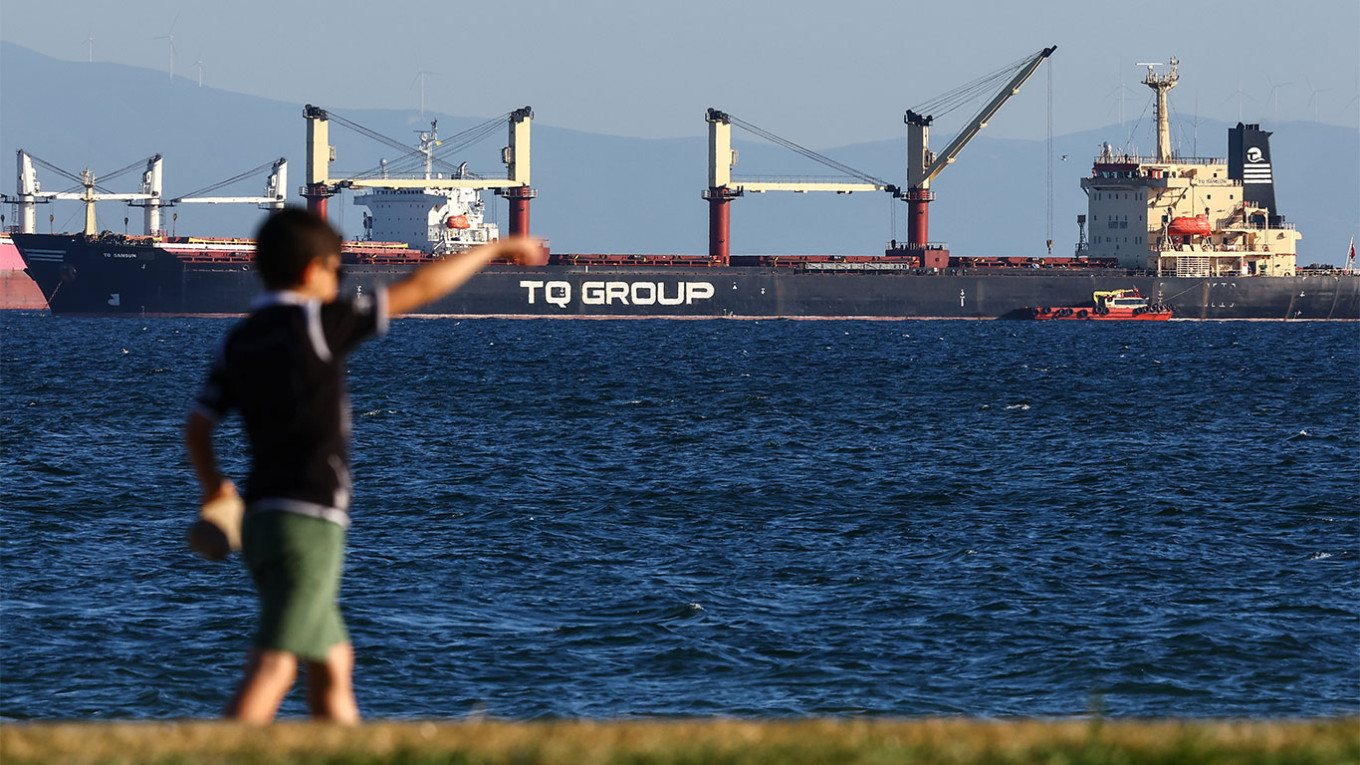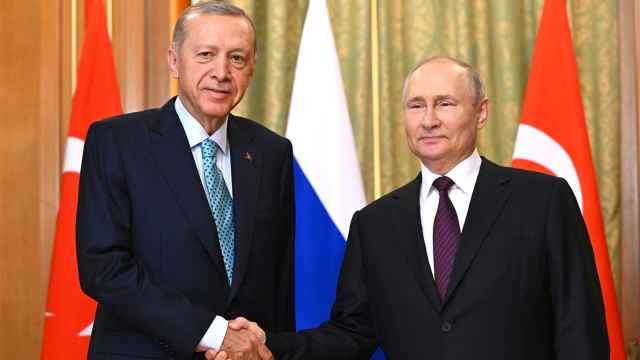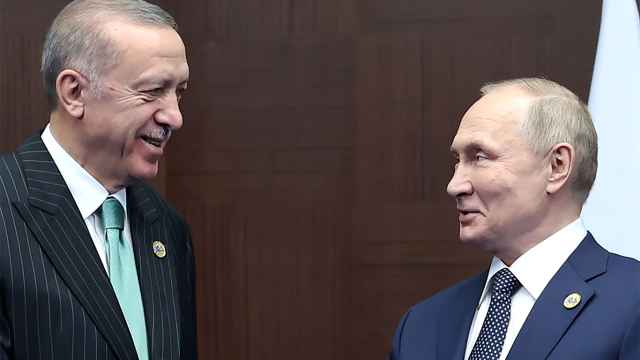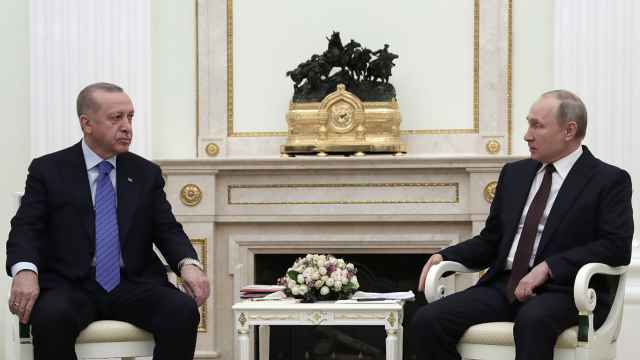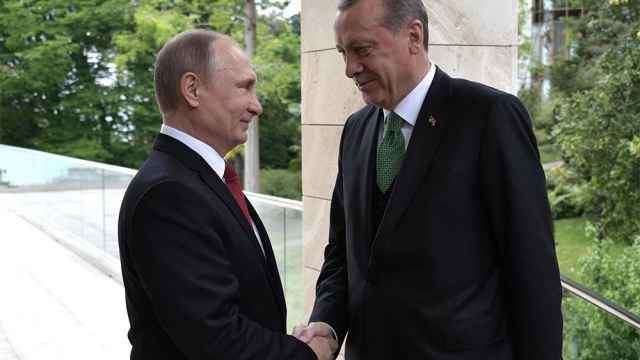Russian President Vladimir Putin and Turkish counterpart Recep Tayyip Erdogan will hold their first face-to-face meeting in a year on Monday in a bid to resolve the crisis over Russia’s exit from a deal guaranteeing Ukrainian grain exports.
The meeting, which was initially set to take place in August in Turkey, had been postponed several times and moved to Russia’s Black Sea resort city of Sochi to accommodate Putin, who has not traveled abroad since the International Criminal Court put out a warrant for his arrest.
The final days before the meeting have seen intensive talks between Turkish and Russian diplomats, as well as between officials from Turkey and the European Union, the United Nations, Ukraine and the United States, an insider close to the Russian Foreign Ministry told The Moscow Times.
The source, who spoke on condition of anonymity given the confidential nature of the preparations, said he hoped the leaders could reach an agreement but admitted it would not be easy.
"Until literally the last day there were intensive consultations as to what form and in what parameters it is possible to restore the grain deal,” the source told The Moscow Times.
"If it is not restored, it actually means that the entire waters of the Black Sea will turn into a foothold for an unrestricted military confrontation," the source continued. "This can affect not only military but also commercial vessels. Moreover, not only of the warring parties [Russia and Ukraine] but also of everyone who navigates there."
"I think everyone realizes that this should have been avoided as much as possible," the insider said.
The Kremlin terminated the Black Sea grain deal in July, citing complaints that its demands within the framework of the agreement had not been met.
Since it was agreed upon a year prior, the UN and Turkish-brokered deal had ensured the safe wartime export of grain and foodstuffs from Ukraine, a major global supplier, via Turkey.
Ankara is keen to revive the deal because it wishes to solidify its status as an international peace mediator — along with more profit-driven motives.
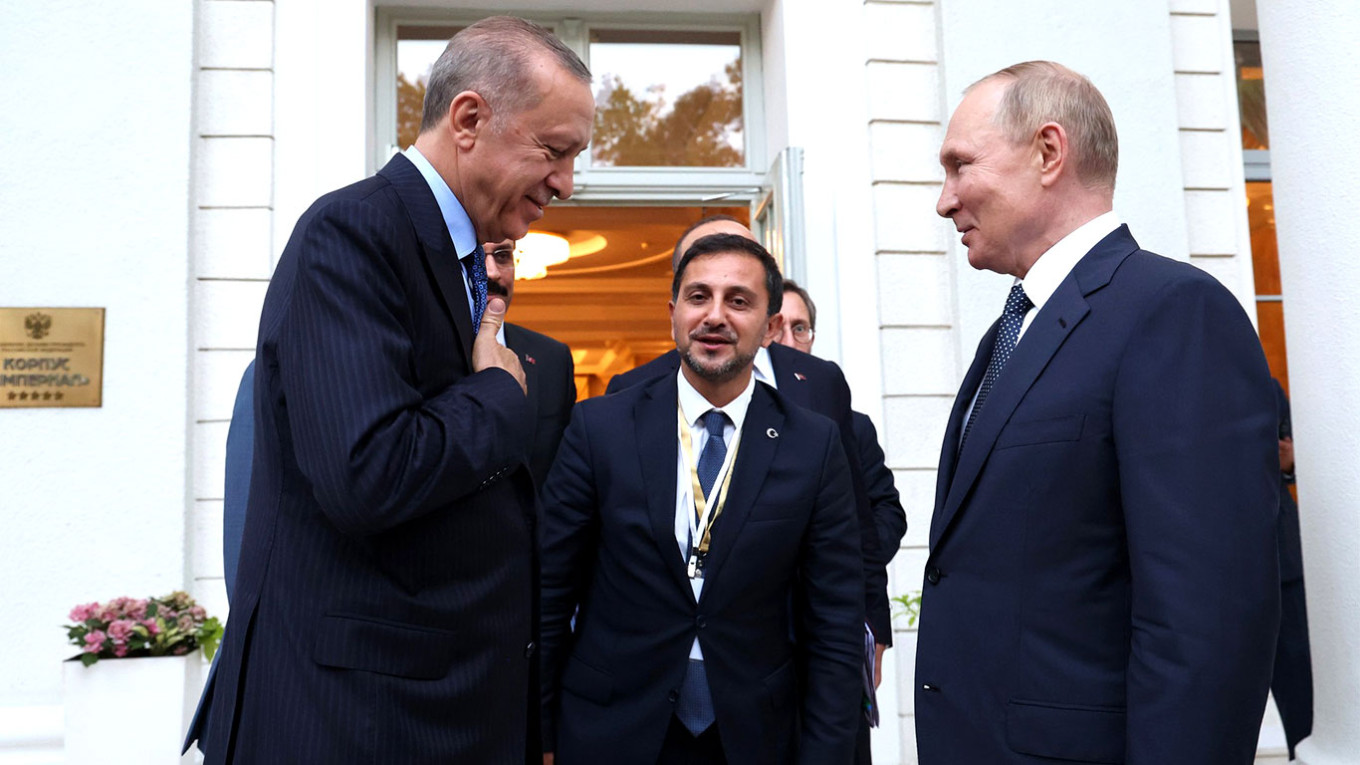
"Erdogan gets an important inflow of funds as the country has the role of a grain hub, processes some of the grain into flour and sells it as a Turkish product," a retired European diplomat told The Moscow Times.
The July 2022 Black Sea grain deal actually consisted of several agreements: one between Turkey and Ukraine and the other between Russia and the UN. Erdogan lacks the power to influence Moscow's demands of the U.S. and the EU, which remains reluctant in principle to lift any sanctions against Russia.
"Erdogan and Putin can try to agree to simply replace Ukrainian grain supplies to Turkey with Russian grain supplies that Qatar is willing to pay for. But this can under no circumstances suit Kyiv," the retired European diplomat said.
"In this case, tankers carrying Russian grain would become a target for the Ukrainian military and intelligence," the insider close to the Russian Foreign Ministry agreed in a conversation with The Moscow Times.
Alternatively, Turkey could theoretically become a hub for grain supplies from both Ukraine and Russia.
"But there are a lot of complexities here. Kyiv will never accept [the inclusion of] grain supplies from the territories of Ukraine occupied by the Russian army. They consider them stolen. And how to separate them [from Russian grain]?" said the Russian Foreign Ministry insider.
It is also unlikely that Ukraine will commit to ending attacks on port infrastructure in annexed Crimea.
Erdogan remains the only NATO leader who has not cut ties with Putin or sanctioned Russia over the invasion of Ukraine. This gives him leverage to pressure the Kremlin during negotiations.
In addition to discussing grain supplies, several topics relating to bilateral ties will be on the table, according to a list obtained by The Moscow Times, including Russian gas supplies to Turkey, nuclear energy, and tourism. Syria and Libya, where both countries have significant interests, as well as the Azerbaijani blockade of the ethnic Armenian enclave of Nagorno-Karabakh, are among the foreign policy issues to be discussed.
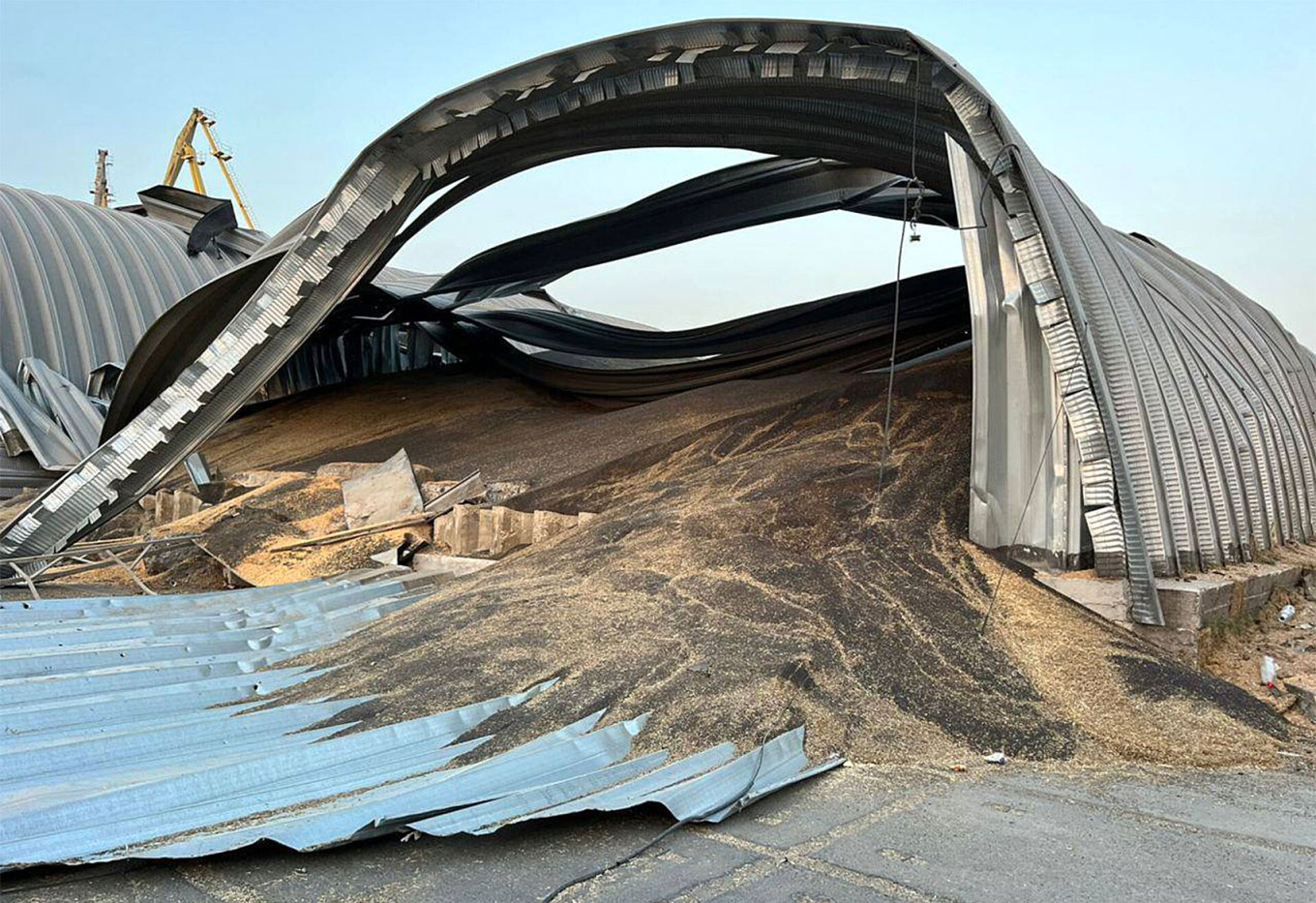
In recent years, Russia has become one of the leaders in the global market for agricultural products and fertilizers. While the West did not target Russian grain and fertilizers with sanctions after the invasion of Ukraine, it has placed restrictions on insurance, payments and other aspects related to these exports.
These continued restrictions prompted Moscow's withdrawal from the deal.
Russia is now demanding that state agricultural bank Rosselkhozbank be reconnected to the SWIFT financial messaging system; that deliveries of agricultural equipment and spare parts be resumed; that restrictions on ship insurance and a ban on access to ports be lifted, and that Russian finances for food and fertilizer be unblocked.
In the two months since the grain deal was halted, tensions in the Black Sea between Moscow and Kyiv have escalated. Russia spearheaded multiple aerial drone attacks on infrastructure for grain shipments at ports near Odesa and on the Danube River, while Ukrainian naval drones in July damaged the Crimean bridge for a second time and stepped up attacks on Russian warships.
Moscow and Kyiv have alternately threatened to treat any vessels, including civilian ones, leaving their ports as military targets.
Despite its naval superiority, Russia is not capable of organizing a total blockade of Ukrainian ports and stopping grain shipments. Ukraine’s grain terminals on the Danube, which lie on the border with NATO member Romania, allow it to ship directly to Germany.
Nor can Moscow take away Ukraine’s ability to transport grain by land, said Andrei Sizov, a leading Russian expert in the agriculture and food industry.
Meanwhile, Ukraine, with the use of maritime drones, is able to exert considerable pressure and cause trouble not only for Russian warships but also for Moscow’s grain and fertilizer shipments from its main Black Sea export hub of Novorossiysk.
If the grain deal is not renewed and Ukraine’s ports remain blocked, the world will be left to grapple with the severe economic fallout along with the heightened risk of conflict in the Black Sea.
"If the market gets spooked and if there is a closure of the Kerch Strait, which [transports] 30% of Russian exports, there will be a rally like what we saw at the outbreak of the war. In a couple of weeks, prices could skyrocket by several tens of percentage points," Sizov said.
"Putin is threatening Ukraine: ‘If you don't negotiate with us now, you will lose your markets.’ And Ukraine is trying to show there is no blockade by releasing Ukrainian civilian ships with grain,” the retired European diplomat told The Moscow Times.
“It's a very interesting game. But dangerous."
A Message from The Moscow Times:
Dear readers,
We are facing unprecedented challenges. Russia's Prosecutor General's Office has designated The Moscow Times as an "undesirable" organization, criminalizing our work and putting our staff at risk of prosecution. This follows our earlier unjust labeling as a "foreign agent."
These actions are direct attempts to silence independent journalism in Russia. The authorities claim our work "discredits the decisions of the Russian leadership." We see things differently: we strive to provide accurate, unbiased reporting on Russia.
We, the journalists of The Moscow Times, refuse to be silenced. But to continue our work, we need your help.
Your support, no matter how small, makes a world of difference. If you can, please support us monthly starting from just $2. It's quick to set up, and every contribution makes a significant impact.
By supporting The Moscow Times, you're defending open, independent journalism in the face of repression. Thank you for standing with us.
Remind me later.



